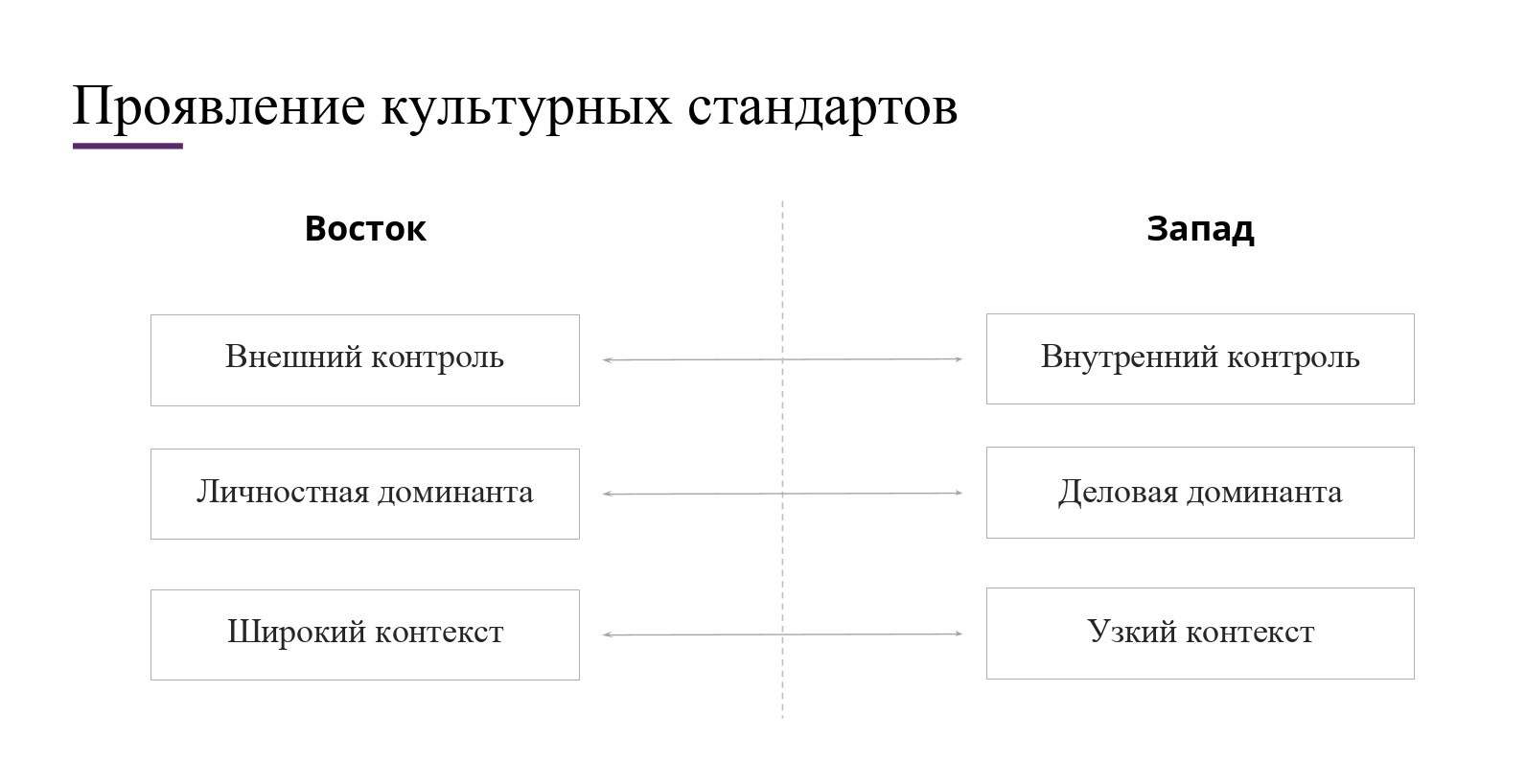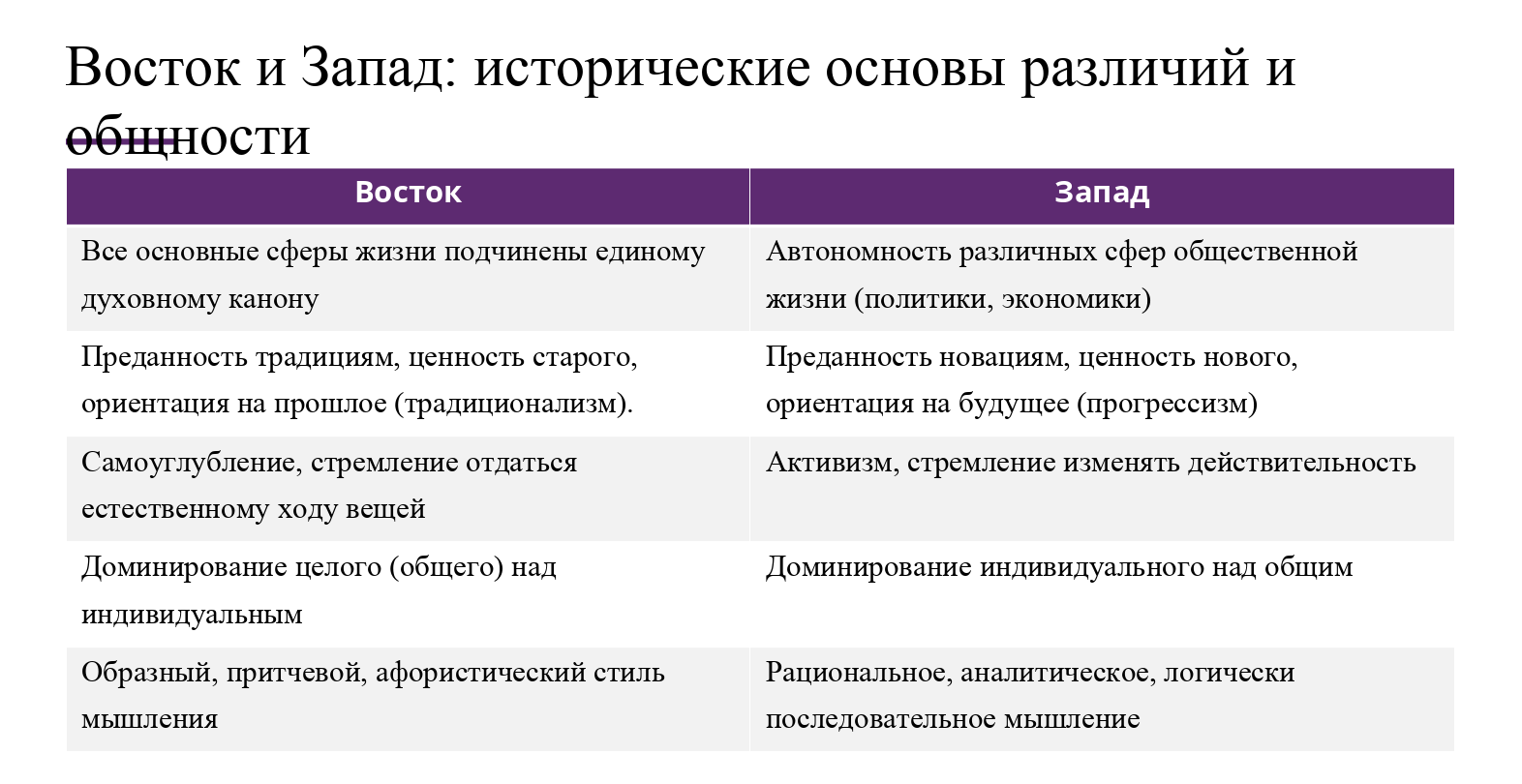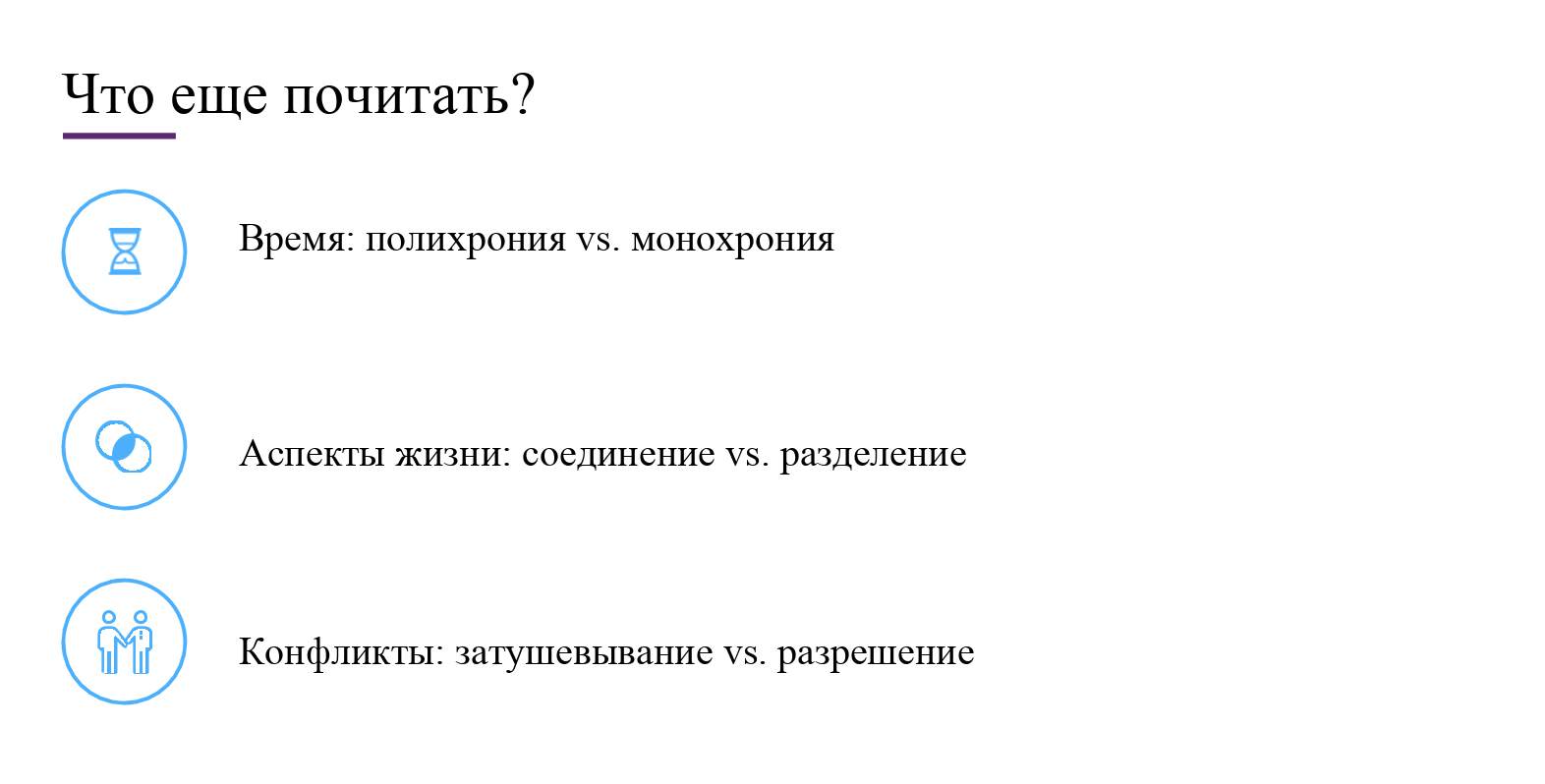Has it ever happened that your colleagues, who were brought into Western companies, either on a business trip, or permanently, or simply have to interact with foreigners on a project day after day, shared serious thoughts with you? And they complained to you about the problems that you have never encountered here in Russia. Either “I don’t like our foreign customer, he’s somehow unsociable, he’s not smiling or joking!”, Then “The new boss from Europe is a robot of some sort! He didn't let me go home from lunch yesterday! And I had to go to the tax office! ”, Then“ I called my new colleague from Germany to the restaurant, so to speak, to discuss the project, but he refused! He said that all issues should be resolved at work! I see him as a person, and he is like that! "
Colleagues with all the breadth of the Russian soul - which, as it is sung, is from the "Volga to the Yenisei" - and the foreigners turn up their faces and do not seem to want to know. And then I no longer want to build bridges - neither drink beer together, nor discuss the project tête-à-tête, and not in a strict negotiation room, and I don’t want to cooperate very actively either, they say, maybe the project is coming to production anyway.
There is a saying among many peoples of the world "If you think that you are talking to a fool, then most likely they are thinking the same about you now." Foreigners also have a hard time understanding our impulses and our motivation.
I will tell you why we sometimes cannot find the reason and meaning for the behavior of foreign colleagues and why many of us find them so “strange”.

, - , — , . Siemens Business Services, , , 15 IT 10 .
: «, , , ,
».
«» — , . «» — (), , .
, , , , , , . :
- . « » «Beyond culture». ( ), , .
- « » «Culture’s Consequences». , .
- « », , .
, , .

:
— , / .
— (« »)
— « , ».
— .
:
— .
— « , ».
— .
, :
— «» .
— .
— .
, , . , . , .
: « , , ?»
- , , : , , , . ,
. , 1054 . 20 .

, :
– , , , , , , , /.
– , , .
— . , , « » – , , , . , , .
?
, – .
, , ? 35% — 2-3 . , ? 9- 10.
:
— , .
— , .
:
— , .
— , .
, :
— , .
— , .
— .
, , - .

— . . , 1054 , - — . , , , , 1965 VI .
. , :
— .
— .
— – .
— .
— .
:
— () – .
— .
— .
— .
— .
, ? , , (/), . , , . .
. . .
. , -. — , , –, , - , - , , . , , , .
, , - , . , - , , . , , , - — , .
? -, , -, , , , , , « », , , , , , , , , . , , –, . , - , , . , , , .
, ? , , 1 .
, , , , , , , , , , . ? .
. :
:
— – 30%.
— – 70% (, , , ). .
— «», «».
:
— «». .
— « », « ».
, :
— , .
— «» .
— , .
. , . « », « », , .

, ? . , , , .
«» , «» .
, « SCRUM-». , 9 19-00.
DataArt, Inc. 500 I 5000 ( ), 1000 « ». 2 60 , , (Scrum, Kanban), (PMI-PmBoK).